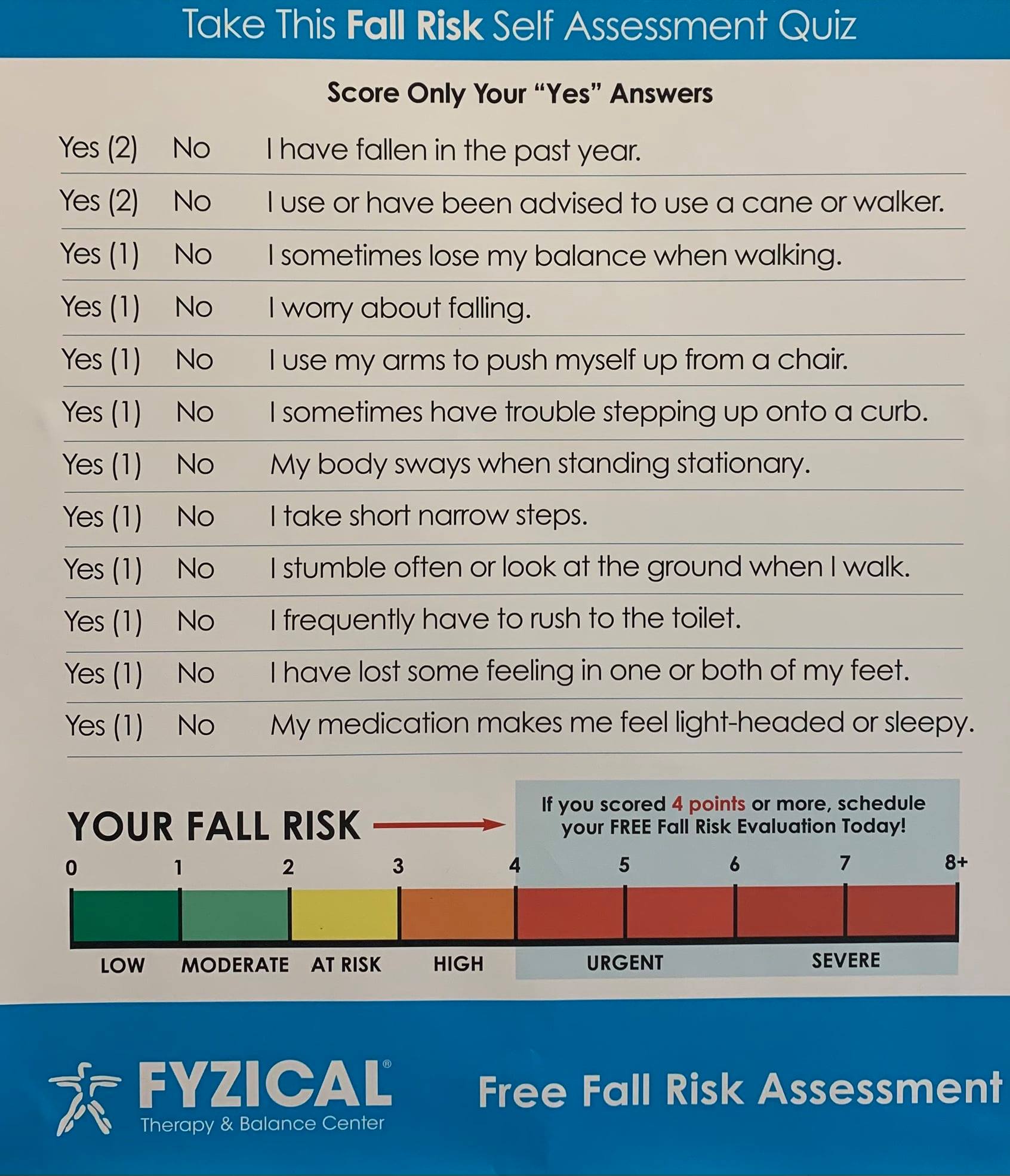The Best Guide To Dementia Fall Risk
Table of ContentsHow Dementia Fall Risk can Save You Time, Stress, and Money.Rumored Buzz on Dementia Fall RiskThe Dementia Fall Risk StatementsAn Unbiased View of Dementia Fall RiskThe Basic Principles Of Dementia Fall Risk
Guarantee that there is a marked area in your clinical charting system where team can document/reference ratings and document relevant notes connected to drop avoidance. The Johns Hopkins Fall Threat Assessment Tool is one of numerous devices your personnel can make use of to aid avoid negative clinical events.Patient falls in medical facilities are typical and debilitating unfavorable events that linger regardless of years of effort to minimize them. Improving interaction across the evaluating registered nurse, treatment group, patient, and client's most involved loved ones may reinforce loss avoidance initiatives. A group at Brigham and Female's Hospital in Boston, Massachusetts, looked for to create a standardized loss avoidance program that focused around enhanced communication and patient and household engagement.

The development team highlighted that successful implementation depends upon patient and staff buy-in, integration of the program right into existing process, and fidelity to program processes. The team noted that they are grappling with how to make certain continuity in program execution throughout durations of dilemma. During the COVID-19 pandemic, as an example, an increase in inpatient drops was related to constraints in person engagement in addition to limitations on visitation.
Getting My Dementia Fall Risk To Work
These events are generally considered preventable. To execute the treatment, organizations require the following: Access to Loss suggestions resources Fall ideas training and retraining for nursing and non-nursing personnel, consisting of brand-new nurses Nursing operations that enable for person and household interaction to conduct the falls evaluation, ensure use the avoidance plan, and carry out patient-level audits.
The results can be very detrimental, typically accelerating individual decline and triggering longer health center remains. One study approximated stays increased an extra 12 in-patient days after a person loss. The Autumn TIPS Program is based on engaging people and their family/loved ones across three major processes: analysis, personalized preventative interventions, and auditing to ensure that clients are taken part in the three-step autumn avoidance procedure.
The patient analysis is based on the Morse Loss Range, which is a validated fall danger assessment tool for in-patient hospital settings. The range includes the six most common factors individuals in health centers fall: the client fall background, risky conditions (including polypharmacy), use of IVs and various other external tools, mental condition, gait, and wheelchair.
Each risk element links with one or more workable evidence-based treatments. The nurse creates a plan that includes the interventions and shows up to the care team, individual, and household on a laminated poster or printed aesthetic help. Registered nurses create the plan while consulting with the client and the patient's family members.
The Single Strategy To Use For Dementia Fall Risk
The poster acts as a communication device with other members of the individual's care team. Dementia Fall Risk. The audit element of the program includes examining the person's read this post here expertise of their threat variables and prevention plan at the system and healthcare facility degrees. Nurse champions carry out at the very see it here least five private interviews a month with patients and their families to look for understanding of the fall prevention plan

An estimated 30% of these falls outcome in injuries, which can range in severity. Unlike other damaging events that need a standardized medical reaction, fall avoidance depends very on the demands of the individual. Including the input of individuals that recognize the client ideal permits greater personalization. This strategy has verified Full Report to be more effective than autumn avoidance programs that are based mostly on the production of a danger rating and/or are not customizable.
How Dementia Fall Risk can Save You Time, Stress, and Money.

Based upon auditing outcomes, one website had 86% compliance and 2 sites had more than 95% compliance. A cost-benefit evaluation of the Fall TIPS program in 8 medical facilities estimated that the program price $0.88 per client to apply and caused cost savings of $8,500 per 1000 patient-days in straight expenses associated with the prevention of 567 tips over three years and 8 months.
According to the advancement team, companies thinking about carrying out the program ought to perform a readiness analysis and falls prevention voids analysis. 8 In addition, organizations must make sure the essential framework and workflows for application and create an implementation strategy. If one exists, the company's Loss Prevention Task Pressure should be included in preparation.
The Best Strategy To Use For Dementia Fall Risk
To start, organizations need to make certain conclusion of training modules by registered nurses and nursing aides - Dementia Fall Risk. Hospital team ought to analyze, based on the needs of a healthcare facility, whether to utilize a digital wellness record hard copy or paper variation of the fall avoidance plan. Executing groups must hire and train registered nurse champs and establish procedures for auditing and coverage on autumn data
Staff require to be associated with the procedure of upgrading the operations to engage people and family members in the evaluation and avoidance strategy process. Systems ought to remain in place so that systems can comprehend why an autumn took place and remediate the cause. Much more especially, nurses should have networks to supply continuous comments to both team and device management so they can change and boost loss prevention workflows and communicate systemic problems.